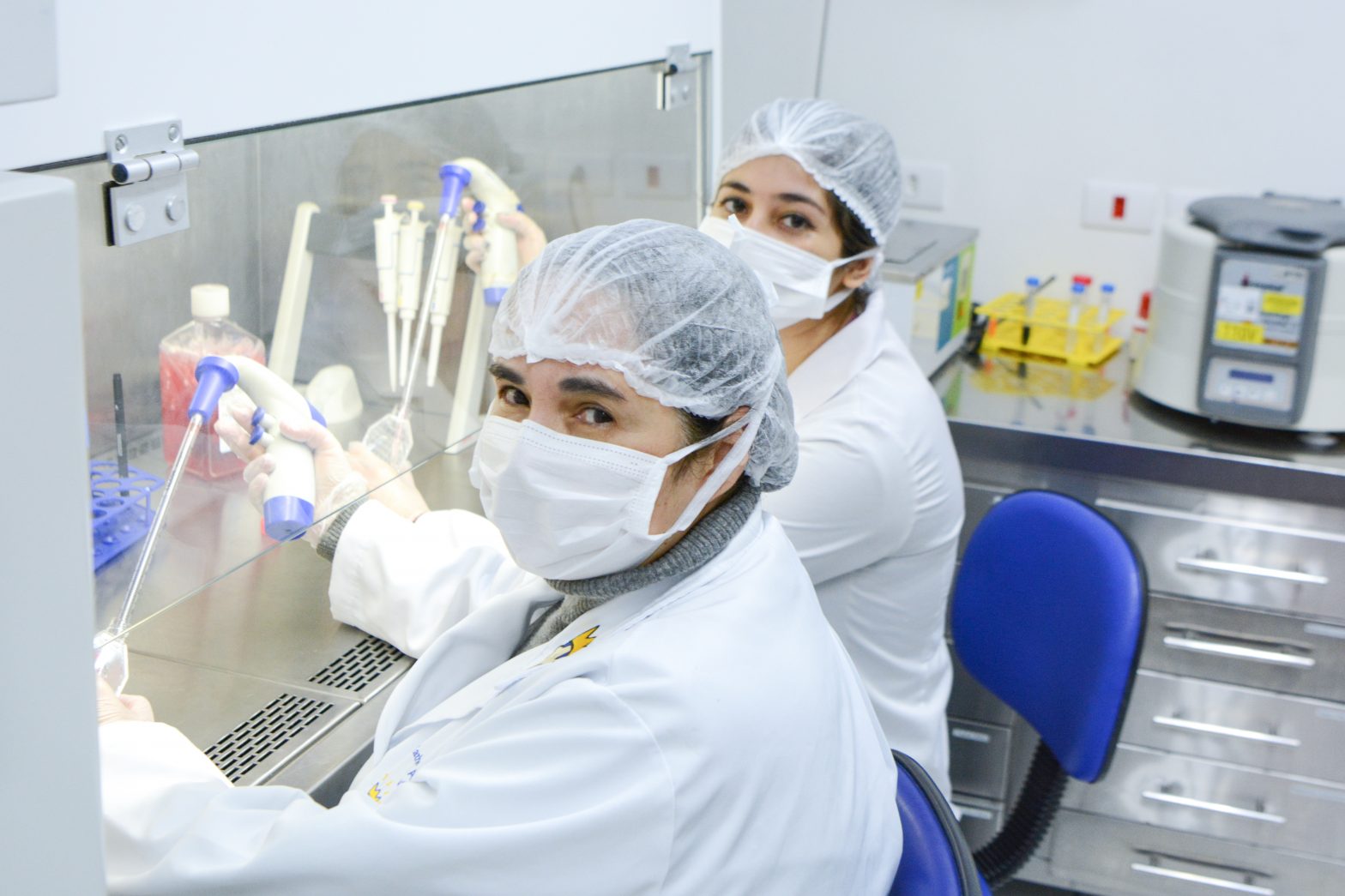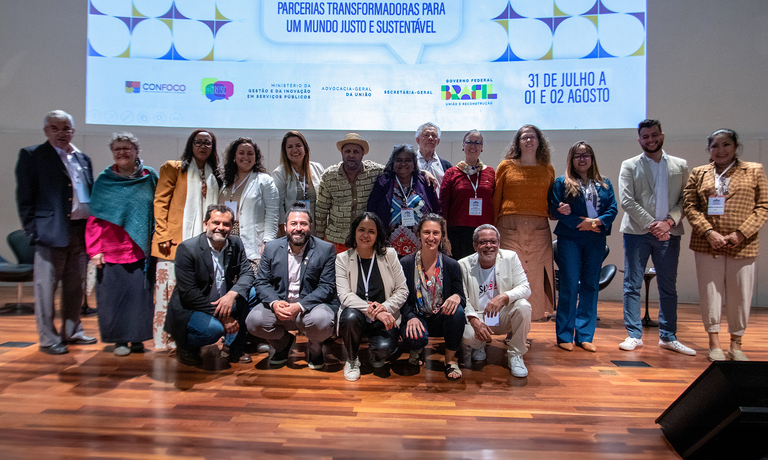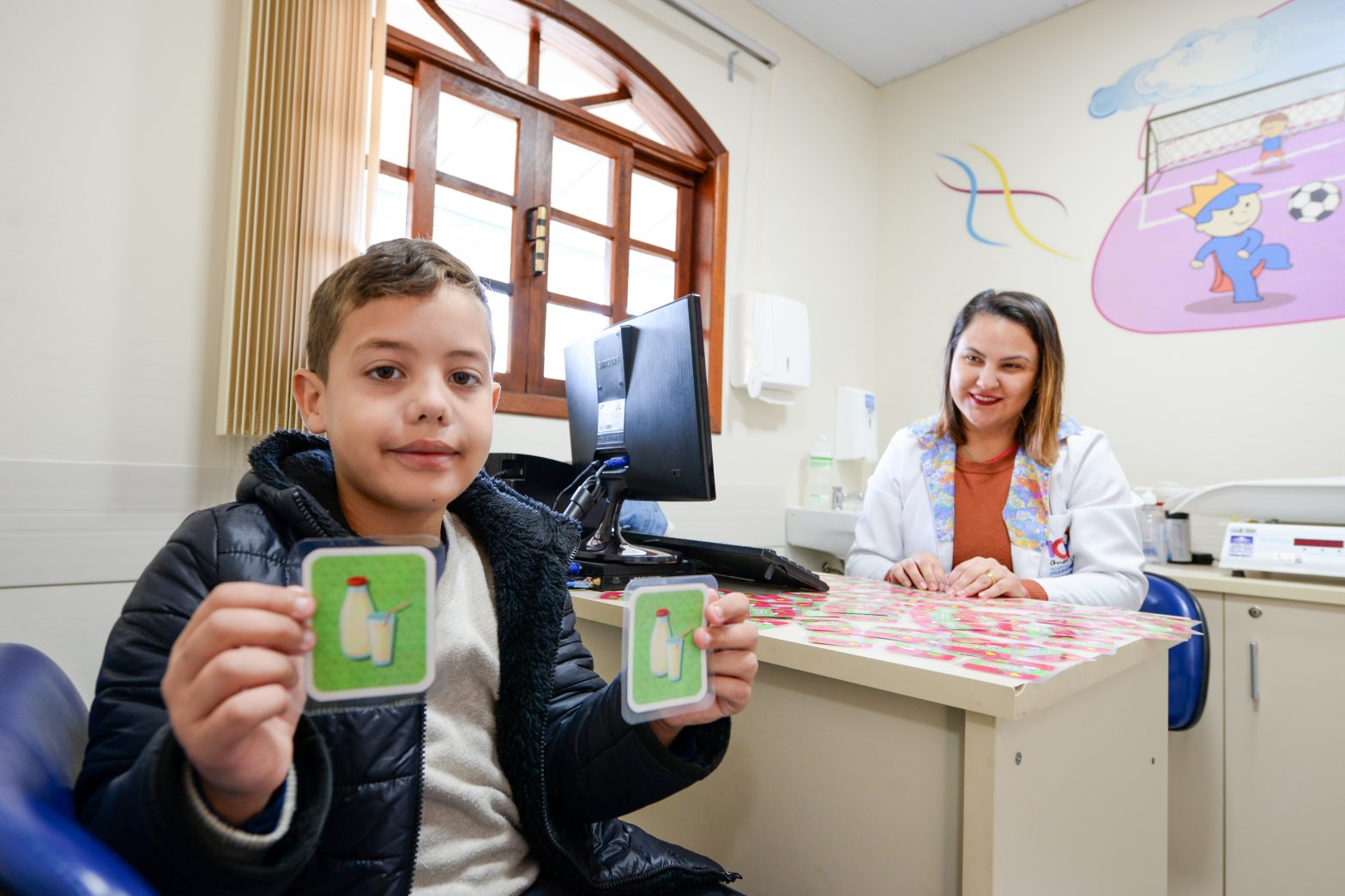Pequeno Príncipe reaches the milestone of 500 bone marrow transplants
The Hospital is a national reference in the procedure, and around 30% of transplants performed at the institution are for rare diseases
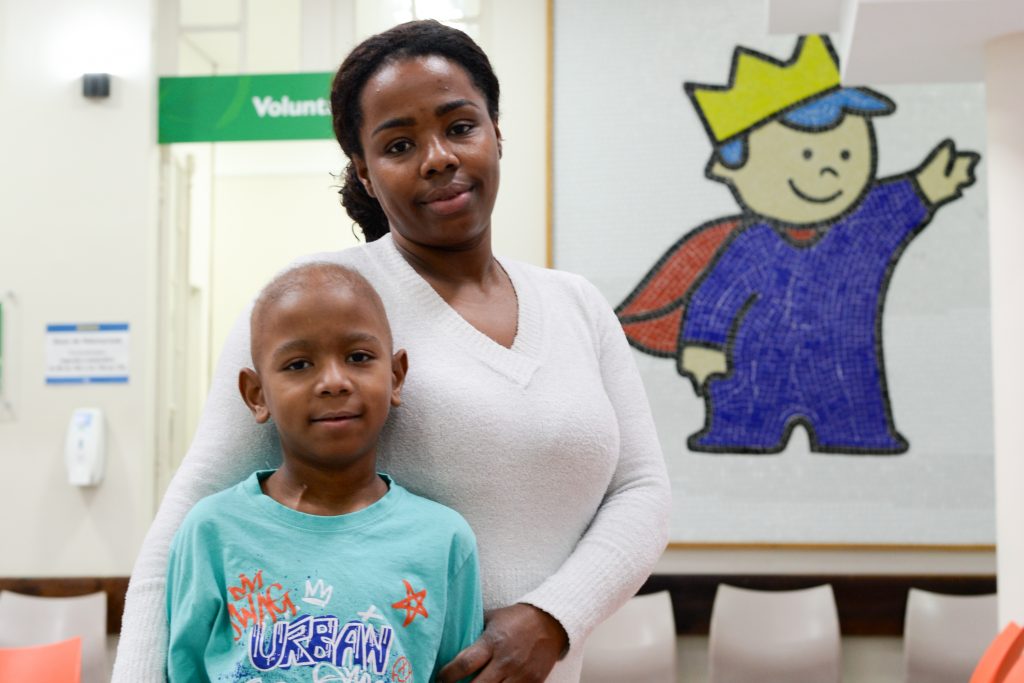
At just 27 days old, Everthon Santana dos Santos, now 7 years old, was diagnosed with sickle cell anemia in his hometown, Ubaíra (Bahia state), through a heel prick test. Since the discovery, he and his mother, Rozangela, traveled 270km every month to Salvador so that the boy could have a blood transfusion, which is one of the treatments for the disease.
Sickle cell anemia is hereditary and characterized by a mutation in the gene that produces red blood cells (hemoglobin). During a crisis, the red blood cell changes its shape, making it difficult for oxygen to pass through, which can cause obstruction of vessels and poor blood circulation in various organs, causing small heart attacks and leading to impaired functioning of the body. Among the most common complications are pain attacks, anemia, infections, and risk of stroke, as was the case with Everthon.
At the beginning of this year, the boy’s exams revealed the imminent risk of stroke, which led to him being recommended a bone marrow transplant (BMT), which is the only curative treatment for sickle cell disease in Brazil. As the procedure is considered highly complex and is not performed in his state of origin, Everthon was referred to Pequeno Príncipe, the largest and most complete pediatric hospital in Brazil, located in Curitiba (Paraná state).
The institution is a national reference in BMT for the treatment of sickle cell anemia, malignant diseases and the care of patients with acquired and hereditary bone marrow failure, primary immunodeficiencies and rare diseases. “I thought the transplant was a simple thing, but it is a very intense process. The team that took care of us is wonderful, and all of our treatment was covered by SUS [the Brazilian Public Health System]. What also made all the difference was that we had everything here at the Hospital, from food, medication, support from a teacher, dentist, nutritionist and much more. We can only be grateful,” says Rozangela Borges dos Santos, the boy’s mother.
Bone marrow transplant no. 500
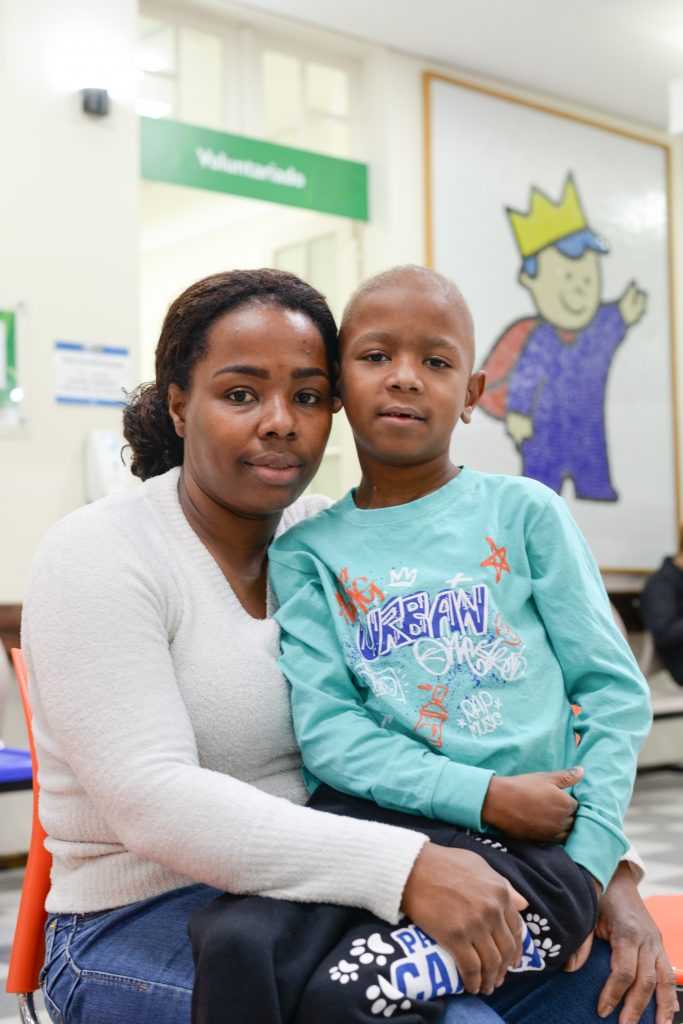
Everthon’s procedure is Pequeno Príncipe’s 500th procedure, an important milestone for the Bone Marrow Transplantation Service, which has transformed the lives of children and adolescents across the country for more than a decade. “Our team feels incredibly happy to reach this milestone. It is a great achievement for everyone through a lot of dedication, care, technical-scientific excellence, but above all, a lot of love for what we do. Today, children that received a transplant when they were babies are now teenagers. Seeing them well is our greatest gift,” stresses doctor Cilmara Kuwahara, responsible for the service.
Around 30% of the procedures performed by the institution are on babies, children and adolescents diagnosed with rare diseases. On average, 60 transplants are performed annually at the Pequeno Príncipe, which is responsible for 12% of all pediatric BMTs performed in Brazil.
The team at the Hospital’s Bone Marrow Transplantation Service is made up of doctors with training in pediatric transplantation, nurses and technicians, infectious disease specialists, intensivists, nephrologists, cardiologists, neurologists, endocrinologists, dermatologists, and hematologists. In addition, patient care also includes an entire structure that involves, among other areas, the Genomic Laboratory, the Pelé Pequeno Príncipe Research Institute and assistance from multidisciplinary teams (psychologists, nutritionists, social workers, physiotherapists, dentists, and pharmacists).
All of this guarantees excellent service that has influence in the treatment of patients and the results of transplants. “At the Pequeno Príncipe, we have access to several innovative technologies, and the institution is a reference in many areas of pediatrics. The multidisciplinary teams and different medical specialties bring an unfamiliar perspective to the care of each child, which is key to achieve our results. Furthermore, we also actively participate in academic activities inside and outside the Hospital, which makes it possible to take our excellence throughout the country,” concludes Cilmara.
More
Research seeks to develop new treatment for Alzheimer’s
Ranked in fifth place among the 204 registered, the project was approved by the Brazilian governmental agency Finep and will receive financing of US$ 2.06 million
Pequeno Príncipe discusses culture of donation at the MROSC seminar
The event was part of the G20’s agenda of activities to strengthen discussions on partnerships between public administration and civil society organizations
Health education actions empower children and caregivers to self-care
Chronic patients are especially benefited by the actions, which seek to adapt the guidelines to an easy-to-understand language


